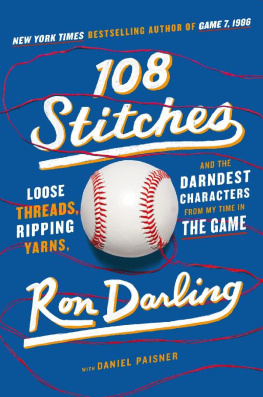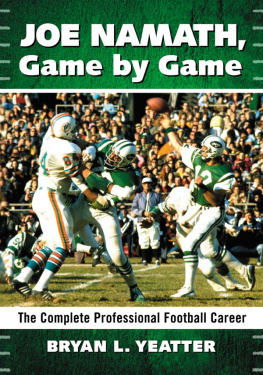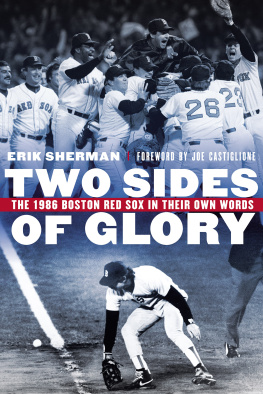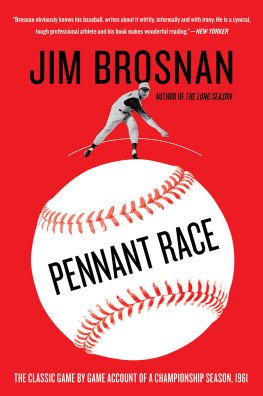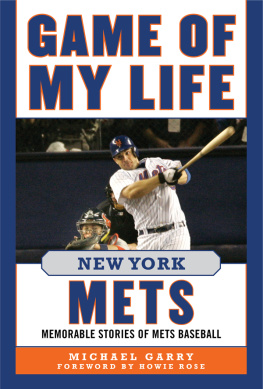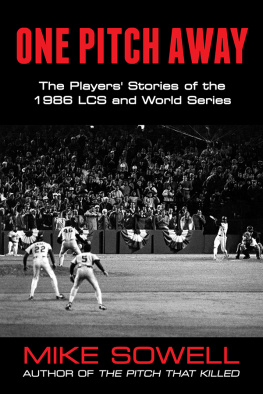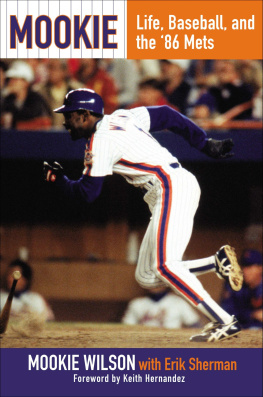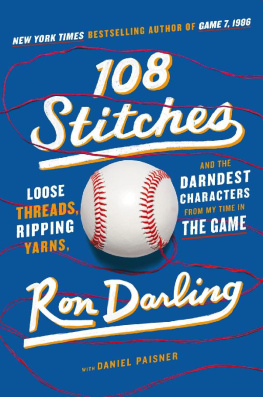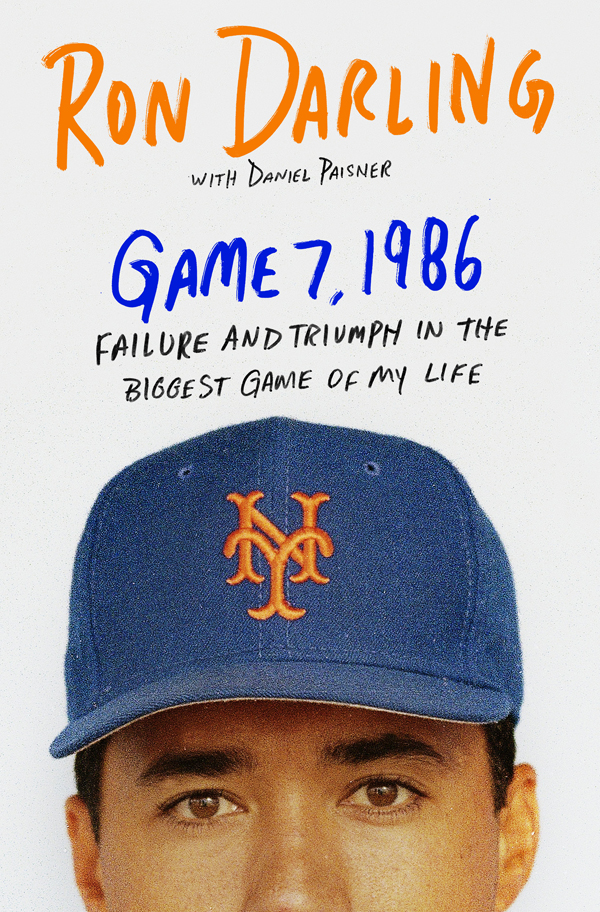Contents
Guide

The author and publisher have provided this e-book to you for your personal use only. You may not make this e-book publicly available in any way. Copyright infringement is against the law. If you believe the copy of this e-book you are reading infringes on the authors copyright, please notify the publisher at: us.macmillanusa.com/piracy.
Ive had a great life. This book is just a sneak peek into it. But none of it would have happened without my parents
Ron Sr. and Mikina.
Theres three things you can do in a baseball game. You can win or you can lose or it can rain.
CASEY STENGEL, HALL OF FAME MANAGER
A baseball game is simply a nervous breakdown divided into nine innings.
EARL WILSON, FORMER MAJOR LEAGUE PITCHER
Like a lot of former ballplayers time in the sun, mine was marked by a moment, a game, a streak, a season. For me, those sun-drenched benchmarks found me as a member of the 1986 New York Mets, a championship team that stamped my time in the game, and yet I was never much interested in writing about that one wondrous season, mainly because I wasnt much interested in telling the wild stories people seemed to want to hear.
We made a lot of headlines that year, and in all the years since. Some of the noise we made had to do with baseball, but a lot of it was just noise. When youre young and stupid and on top of your game, you find ways of convincing yourself youll always be young and stupid and on top of your game. You stick your chest out, you strut, because youve been conditioned to stick your chest out, to strut. You move without thinking, make a lot of decisions youd like to take back, tell yourself the baseball part can be switched to autopilot while you and your teammates find a bunch of new ways to enjoy the ride.
And so the bad boy image that attached to that team wasnt something I cared to perpetuate. Id lived itI didnt need to revisit it. Whatever happened outside the lines that year was for me and my teammatesyouthful misadventures to file away and maybe even forgetbut what happened inside the lines was certainly something special, something to be cherished and considered.
So I didprivately.
Lately, as the thirtieth anniversary of the 1986 World Series approached, I began to look back on that time in my life through a wistful lens, and it occurred to me that I was uniquely positioned to shine a particular light on that summer, on those postseason games that have been etched into baseball lore even on some of those bad boytype shenanigans that, taken in context, helped to shape the personality of that championship team. I started to realize that what most people remember when they think of the 1986 Mets is Game 6 of the World Series, which has by now taken on the hue of a Bernard Malamud novel on steroids. What they remember, specifically, was just one playand they remember it with brushstrokes keyed to their allegiance.
Recall, the Sox had been up by two runs going into the bottom of the tenth inning, leading the series three games to two, before three straight two-out singles and a wild pitch tied the game, setting the stage for an unlikely sequence of events that would emerge as one of the Games iconic momentsand here I deliberately capitalize the G in Game to refer not to this one Game 6 but to the game of baseball itself.
To this day, Red Sox fans remember the excruciating, slowly unfolding scene as a dribbler half scooted through the legs of Bostons hobbled first baseman Bill Buckner and into right field, allowing Ray Knight to score from second with the winning run. The picture was particularly painful, alas, because the beloved Sox had been so famously disappointed for so longa history of frustration and doggedness that has only been partially erased by the franchises recent run of World Series successes.
Mets fans carry the picture of a joyous Mookie Wilson, the fleet-footed center fielder whod hit the dribbler and smiled on our legacy, bounding toward first base like a kid whod been let out of school early and wanted to make it through the front doors before the principal called him back inside.
In my house, ever after, the memory was attached to Vin Scullys iconic call, which Id taken the time to teach my baseball-mad son Jordan back in 2000, when he was just a kid. To this day, he can recite it word-for-word, cadence-for-cadence: a little roller up along first behind the bag! it gets through Buckner! here comes Knight! and the Mets win it! And in Jordans enthusiasm there was also my ownan astonishment that only seemed to deepen with the years, as we took turns reveling in the games unlikely turn.
Baseball fans in general flash back on a careening roller-coaster ride that came to symbolize the emotional highs and lows of postseason play. For many, this one play fairly defined the 1986 World Series. Indeed, many will tell you it decided the series, which of course was hardly the case. There was still another game to be played.
Game 7 the deciding game .
And, as it turned out, I would get the start.
* * *
What happens when the stuff of your dreams is at hand? Do you rise to the occasion, step to it, grab on? Do you dig deep and discover new layers of grit and resolve to see you through? Do you harness your talents and have at it? Or do you shrink from the moment and wonder what might have been?
I grew up in Millbury, Massachusetts, just outside Worcester, in a sports-crazed family, with three brothers. Let the record show, I was born in Hawaii, but I was raised in the hardworking, hard-cheering heart of New England. We lived and died with our Boston teams. Their victories became ourstheir losses, ours as well. We filled our days with imagined moments of triumph, greatness, transcendence. Always, these moments had to do with snatching victory from the clutches of defeat, finding glory in the specter of gloom. Always, it was about hitting a buzzer-beater shot or a walk-off home run (before the terms were even coined!) or trying to trip each other in the crease with the game on the line la Barclay Plager and Robert Gordon Orr. (Gump Worsley never had a chance.)
Game 7 of the 1986 World Series was my be careful what you wish for momentand my heart climbed into my throat as Ray Knight came around to score on the back of that crazy play down the first-base line. It was thrilling and terrifying, both. Understand, it was a glorious team moment, an unlikely, unwieldy rally that lifted us from the ash heap of World Series wannabes and kept us in the runningan exultant, collaborative victory all around. But as my guys went nuts in celebration, as Shea Stadium rocked in mass pandemonium, as long-suffering Mets fans across the New York metropolitan area jumped up and down in shock and awe and dumbstruckedness, I held back, because I knew that all of that positive energy would now flow back to me.
I should note here that one of the reasons I held back was because I wasnt in the dugout as these unlikely moments unfolded. For a time, I wasnt even in the ballparkas I will explain in the pages ahead. But by the time Ray Knight went barreling down that third-base line, by the time Red Sox fans had filled the air with every known expletive (and, undoubtedly, with a whole bunch of new ones, too), I was huddled over a small television screen in the clubhouse (rabbit-eared, in romantic memory), not quite sure how to process what I was seeing. Whatever was happening out there on the field, however it was happening, it meant the series would now rest on my arm, in my head.


